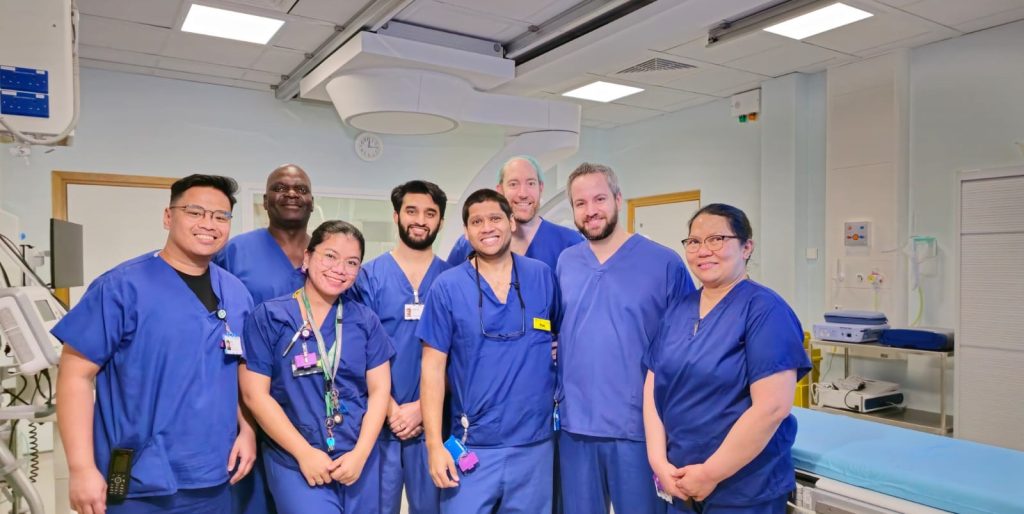Innovative treatment offers new hope to people with an enlarged thyroid
26 February 2024 - Patients at the PRUH can now benefit from a pioneering treatment for non-cancerous growths on their thyroid glands.

The Princess Royal University Hospital, part of King’s College Hospital NHS Trust, has become the first hospital in the United Kingdom to carry out an innovative treatment using microwave energy to treat patients with an enlarged thyroid.
Patients with non-cancerous enlarged thyroid nodules – which cause large visible lumps on the front of the neck that interfere with talking, eating, sleeping and even breathing – are now able to have the growth treated painlessly without surgery.
It is not usually known what causes the thyroid nodules. It can affect any age group but frequently occurs in young women under 50 years of age.
Microwave Thyroid Ablation involves placing a thin needle into the thyroid, guided by ultrasound, then heating it using low energy to approximately 20 watts which destroys the nodule from the inside and causes it to shrink. The procedure itself is performed quickly, usually taking no more than half an hour.
Alicia Miszalski, 54 from Woolwich was the first person to undergo Microwave Thyroid Ablation at the Princess Royal University Hospital. She said:
“I am most grateful to the team for the minimally invasive nature of the procedure and the ability to have it done with so little disruption, without general anaesthetic or extended stay.
“The procedure itself was painless and I have no visible scar. The team were very professional and supportive, making sure I was comfortable at all times, and everything was clearly explained.”
Being able to reduce symptoms from an enlarged thyroid without surgery avoids causing a large scar across the neck. As local anaesthetic is used patients can go home after only a few hours, compared to an overnight stay in hospital required after general anaesthetic with traditional thyroid surgery.
Microwave ablation also has a lower risk of complications, such as requiring lifelong thyroid hormone replacement. The shorter procedure time and same day discharge also means that many more patients can be treated in the time it has previously taken to treat one patient.
Dr Gibran Timothy Yusuf, Consultant Interventional Radiologist at Princess Royal University Hospital, King’s College Hospital NHS Foundation Trust was the first to perform the procedure in the UK. He explained:
“Thyroid nodules can affect people’s lives in many ways, often quite significantly, but with surgery leaving a scar across the neck and the risk of complications or lifelong medication patients have felt reluctant at times to proceed with surgery. Microwave Thyroid Ablation opens up an alternative to those who do not wish to have surgery, and is done in just one day through a pinhole incision achieving excellent results.
“I am very thankful to King’s College Hospital and my colleagues for their support; without Dr Husam Wassati and nursing colleagues this success would not have been possible. I hope we can continue to build on this and innovate more in the future.”
